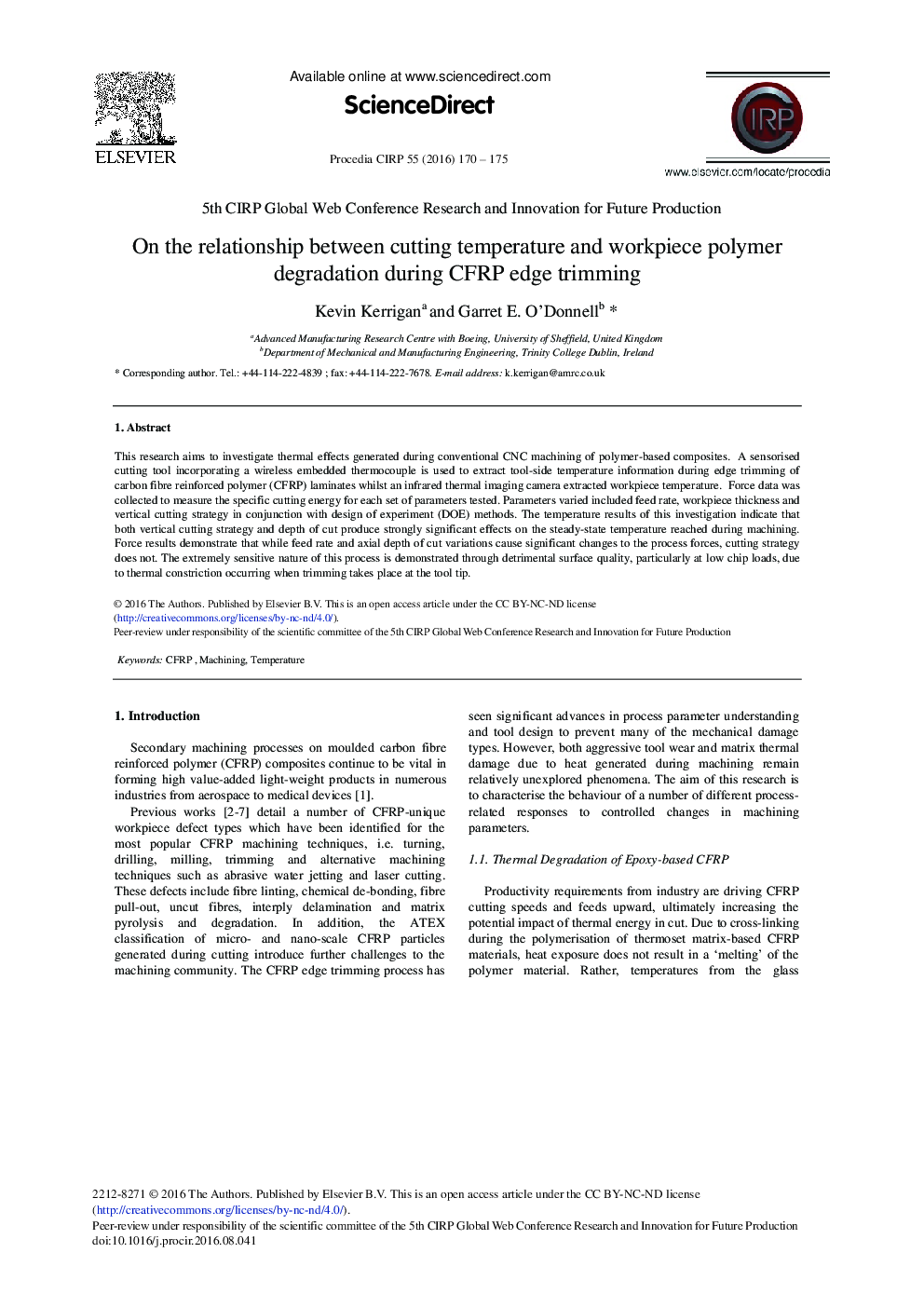| Article ID | Journal | Published Year | Pages | File Type |
|---|---|---|---|---|
| 5470036 | Procedia CIRP | 2016 | 6 Pages |
Abstract
This research aims to investigate thermal effects generated during conventional CNC machining of polymer-based composites. A sensorised cutting tool incorporating a wireless embedded thermocouple is used to extract tool-side temperature information during edge trimming of carbon fibre reinforced polymer (CFRP) laminates whilst an infrared thermal imaging camera extracted workpiece temperature. Force data was collected to measure the specific cutting energy for each set of parameters tested. Parameters varied included feed rate, workpiece thickness and vertical cutting strategy in conjunction with design of experiment (DOE) methods. The temperature results of this investigation indicate that both vertical cutting strategy and depth of cut produce strongly significant effects on the steady-state temperature reached during machining. Force results demonstrate that while feed rate and axial depth of cut variations cause significant changes to the process forces, cutting strategy does not. The extremely sensitive nature of this process is demonstrated through detrimental surface quality, particularly at low chip loads, due to thermal constriction occurring when trimming takes place at the tool tip.
Keywords
Related Topics
Physical Sciences and Engineering
Engineering
Industrial and Manufacturing Engineering
Authors
Kevin Kerrigan, Garret E. O'Donnell,
